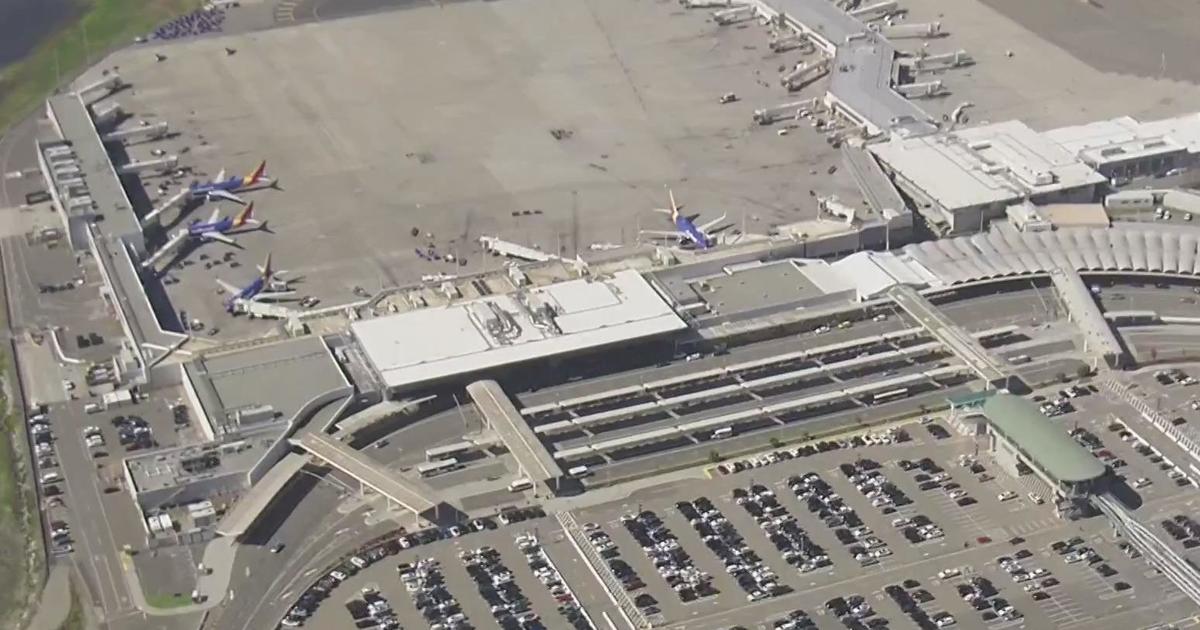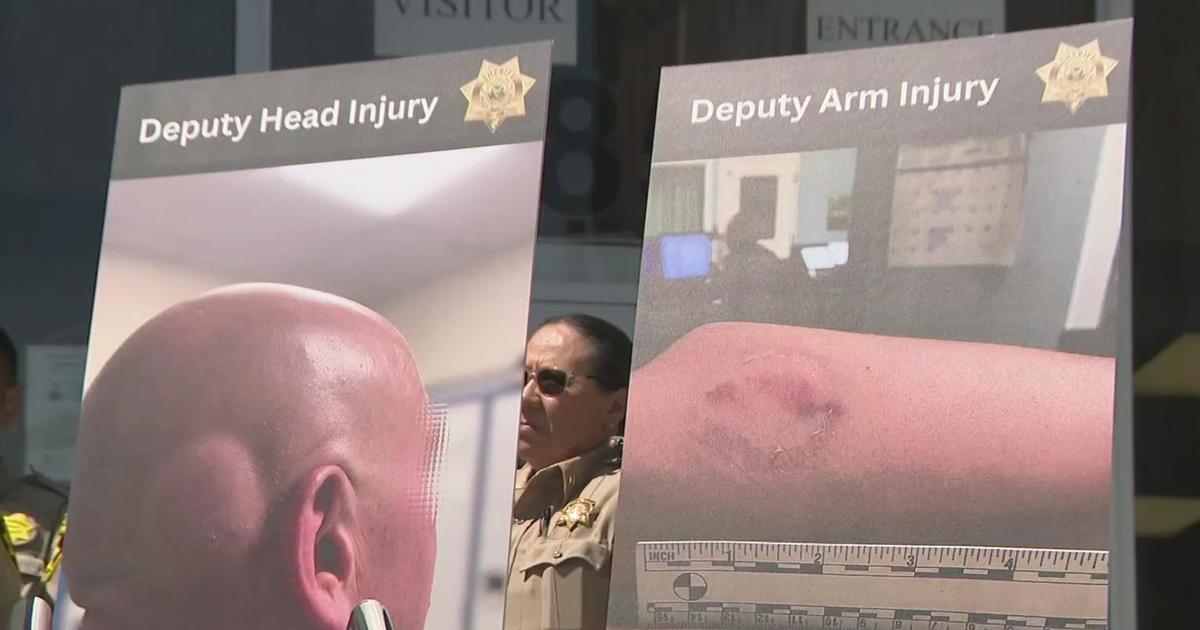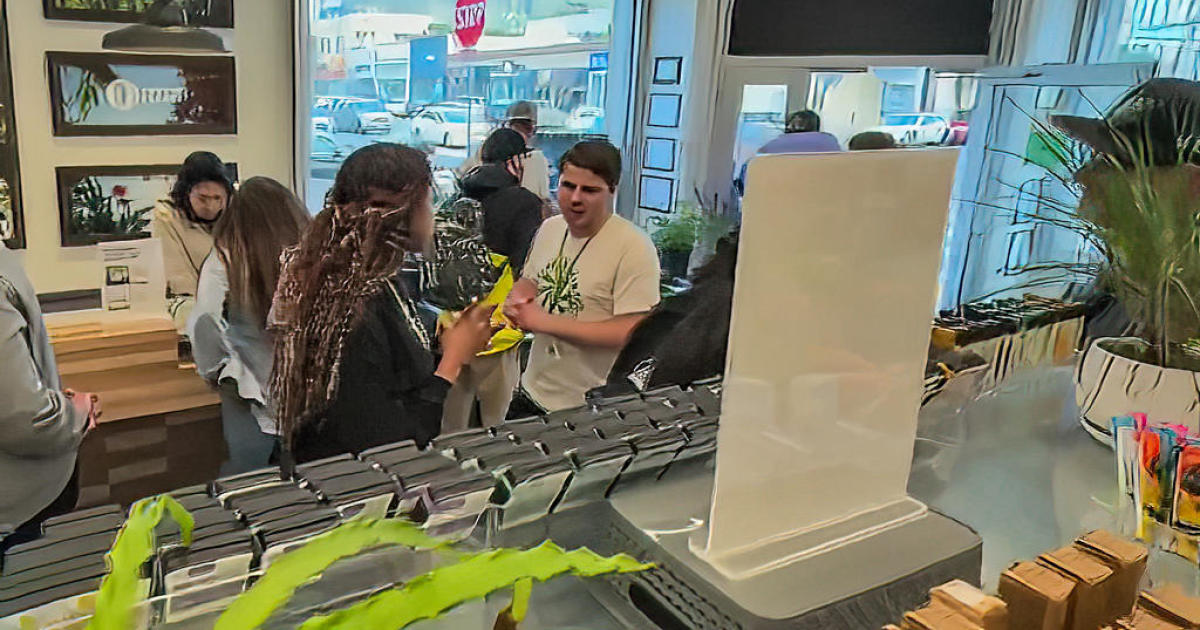SF Federal Court Rules Gays & Lesbians Can't Be Excluded From Juries
SAN FRANCISCO (CBS SF) -- Gay people can't be excluded from juries on the basis of their sexual orientation, a federal appeals court ruled in San Francisco on Tuesday.
The 9th U.S. Circuit Court of Appeals issued the decision in connection with an antitrust and contract dispute between two pharmaceutical companies, GlaxoSmithKline and Abbott Laboratories, over the pricing of HIV medications.
A three-judge panel unanimously ordered a new trial in federal court in Oakland on the ground that a lawyer for Abbott improperly dismissed a gay prospective juror in the original trial in 2011.
Such dismissals "deprive individuals of the opportunity to participate in perfecting democracy and guarding our ideals of justice on account of a characteristic that has nothing to do with their fitness to serve," wrote Circuit Judge Stephen Reinhardt.
"Permitting a strike based on sexual orientation would send the false message that gays and lesbians could not be trusted to reason fairly on issues of great import to the community to the nation," Reinhardt said.
The appeal concerned peremptory challenges, a procedure in which each side during jury selection can dismiss, or strike, a certain number of jury candidates without having to give a reason.
In previous decisions, the U.S. Supreme Court has modified the procedure by ruling that, because of past discrimination, racial minority-group members and women can't be excluded from juries solely on the basis of their race or sex.
When a lawyer does use a peremptory challenge to dismiss a minority group member or woman during jury selection, the attorney may have to explain to the trial judge that there was a reason other than race or sex for the strike.
Tuesday's appeals court decision, which applies in nine western states, extends that same protection to gay people in jury pools.
Jon Davidson, legal director of Lambda Legal, a national gay civil rights group, called the ruling a landmark decision and said it will apply not just to jury selection but also to other types of cases.
"It will have a significant impact," said Davidson, who submitted a friend-of-the-court brief in the appeal.
"It makes it significantly easier to win" gay rights challenges to allegedly discriminatory laws in western states, Davidson said. The decision may bolster a Lambda Legal challenge, now pending in the 9th Circuit, to Nevada's ban on same-sex marriage, he said.
To reach its decision, the circuit court concluded that lesbians and gays are entitled to the protection of a doctrine known as heightened scrutiny in challenges that contend government actions or laws deny their constitutional right to equal treatment.
In heightened scrutiny cases, laws that have the effect of discriminating against a particular group have to be justified by an important government interest. The Supreme Court's previous rulings applied that standard to racial minority group members and women.
Tuesday's decision is the first time the 9th Circuit ruled that concept protects gays and lesbians as well, Davidson said. Only one other federal appeals court in the country, the New York-based 2nd Circuit, has issued a similar decision, he said.
A lower standard, known as rational basis, requires only that there is a possible reason for a law with a discriminatory effect.
Reinhardt and fellow judges Mary Schroeder and Marsha Berzon based their conclusion on an analysis of the Supreme Court's decision last year in United States v. Windsor, the case in which the court struck down a key provision of the federal Defense of Marriage Act.
The measure had barred the U.S. government from recognizing same-sex marriages performed in states where such unions are legal.
Reinhardt wrote that while the Supreme Court didn't explicitly say in Windsor that heightened scrutiny applies to gays and lesbians, its reasoning and the outcome of the case indicate that result.
"In its words and its deed, Windsor established a level of scrutiny for classifications based on sexual orientation that is unquestionably higher than rational basis review," Reinhardt wrote.
"In other words, Windsor requires that heightened scrutiny be applied to equal protection claims involving sexual orientation," the panel said.
In the case appealed to the court, GlaxoSmithKline had accused Abbott of engaging in contract and antitrust violations and unfair trade practices by quadrupling the price of Norvir, a booster drug that could be used with Glaxo's HIV medication.
A jury in the court of U.S. District Judge Claudia Wilken in Oakland in 2011 rejected two of the claims and awarded Glaxo $3.5 million in damages on the contract claim. Both companies then appealed.
The gay juror, known as Juror B, identified himself as homosexual during jury selection by referring several times to his partner as "he," the circuit court said.
The panel said Glaxo was entitled to a new trial because the court record "persuasively demonstrates that Juror B was struck because of his sexual orientation."
Abbott's pharmaceutical research business was spun off last year to a new company, AbbVie. AbbVie spokeswoman Adelle Infante said, "We are reviewing the opinion and evaluating our options."
© Copyright 2014 by CBS San Francisco and Bay City News Service. All rights reserved. This material may not be published, broadcast, rewritten or redistributed.



